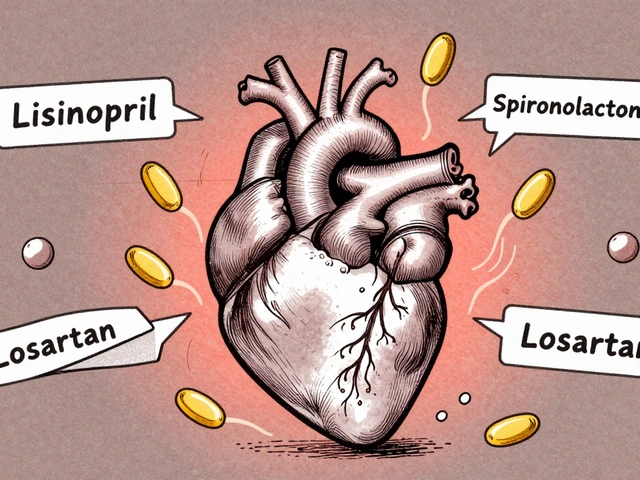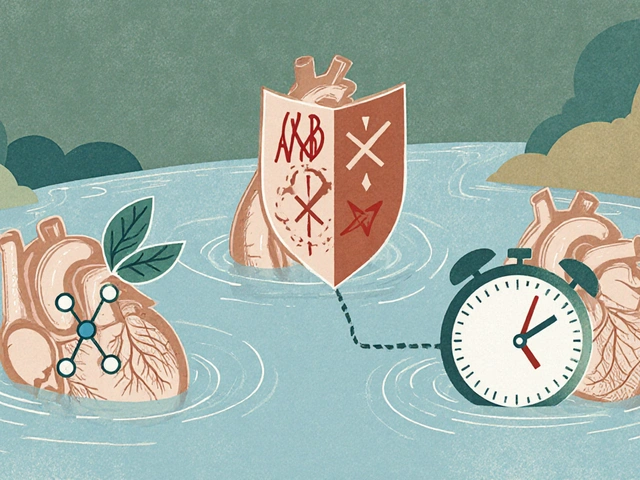Antivirals: How to Choose Safe, Budget‑Friendly Options
Ever wondered what makes an antiviral work? In simple terms, these drugs stop viruses from multiplying, keeping infections from getting worse. They’re used for everything from cold sores to shingles and even flu‑like bugs. Knowing the basics helps you pick the right one without overspending.
Common Antiviral Drugs You’ll Meet
Here are the most talked‑about antivirals you’ll see on prescriptions or in online pharmacies:
- Valtrex (valacyclovir) – popular for herpes outbreaks, genital warts, and shingles. It’s a pro‑drug of acyclovir, so it works faster.
- Acyclovir – the go‑to for cold sores and genital herpes. It’s cheaper than Valtrex but may need more frequent dosing.
- Famciclovir – another option for shingles and genital herpes, often prescribed when Valtrex isn’t tolerated.
- Oseltamivir (Tamiflu) – used for flu, especially if you start it within 48 hours of symptoms.
- Ribavirin – older drug, still used for certain hepatitis C strains and serious viral infections.
Each drug has its own dosage schedule, side‑effect profile, and price point. Your doctor will match the right one to your condition, but you can still control the cost.
Saving Money While Staying Safe
Buying antivirals online can shave off a big chunk of the price, but safety matters. First, check if the pharmacy is licensed in your country and requires a valid prescription. Look for clear contact details, a physical address, and a privacy policy. If a site offers a drug without a prescription, walk away.
Next, compare prices across at least three reputable sites. Many Australian pharmacies, for example, list the PBS (Pharmaceutical Benefits Scheme) price, which is the government‑subsidized rate. If you qualify, you can save even more.
When you already have a prescription, ask your doctor if a generic version is available. Generic Valtrex or acyclovir often cost half the brand name price but work the same way.
If you’re switching from Valtrex to acyclovir because of resistance or cost, talk to your prescriber about dosing adjustments. Acyclovir usually requires four times a day dosing, while Valtrex is once or twice daily. The extra pills can add up, so ask if a longer‑acting formulation fits your budget.
Don’t forget insurance tricks: some plans cover generic antivirals at a lower co‑pay, and mail‑order pharmacies can bundle a three‑month supply for a discount. Keep your receipts; you might claim a tax deduction if the medication is for a chronic condition.
Finally, stay on top of side effects. Common issues like headache, nausea, or mild kidney irritation usually pass, but if you notice anything severe, stop the drug and contact your doctor. Stopping early because of side effects can waste money and prolong the infection.
Bottom line: know the drug, shop smart, verify the pharmacy, and keep the conversation open with your healthcare provider. With those steps, you’ll get the antiviral you need without breaking the bank.

Top Valtrex Alternatives in 2024: Effective Treatments for Herpes Infections
As people search for alternatives to Valtrex, exploring the options becomes essential. Acyclovir, Famciclovir, Penciclovir, and Docosanol offer different approaches to managing herpes infections effectively. Each alternative possesses unique advantages and potential drawbacks, catering to varied needs and conditions. Understanding these options can help individuals make informed decisions alongside consulting healthcare professionals.




